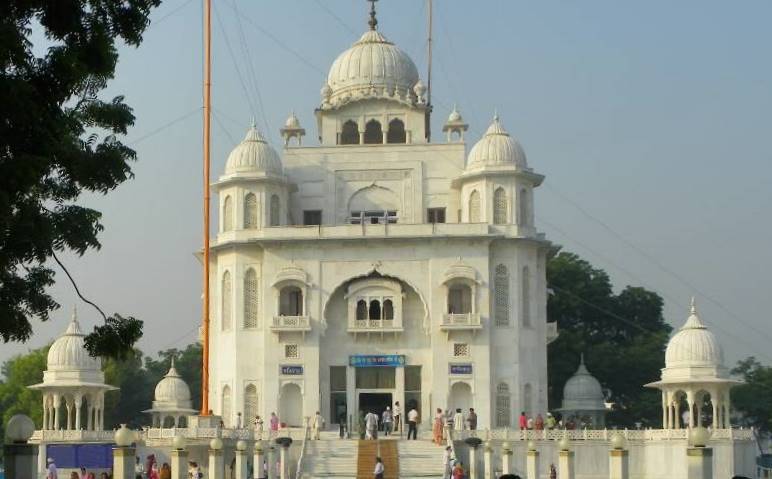Explore the Rikabganj Agitation (1913-20), a pivotal Sikh protest against the British demolition of the Gurdwara Rikabganj wall in New Delhi.
DINA NATH, PANDIT (b. 1888), active supporter of and participant in the Sikh Gurdwara reform movement 1920-25, was born in 1888, the son of Pandit Bal Krishan of Amritsar. In the wake of the agrarian protest in the Punjab in 1907, he joined the Indian National Congress. He was secretary of the Amritsar District Congress Committee when the Gurdwara reform or AkaIi movement got under way with the establishment in November 1920 of a representative Sikh body, the Shiromani Gurdwara Parbandhak Committee. Pandit Dina Nath was in sympathy with the movement and joined the Akali agitation for the restoration of the keys of the to shakhana or treasury of the Darbar Sahib, which had been taken away by the British Deputy Commissioner on 7 November 1921.
Explore Maharaja Ripudaman Singh's legacy, his leadership in Indian reforms, and his complex relations with British rulers and neighboring states.
Discover the Ghadr Movement, a key force for India's independence, rooted in early 20th-century migration and labor in North America.
Discover Saka Panja Sahib, a historic Sikh event of bravery on October 30, 1922, marked by courage, nonviolent protest, and martyrdom at Hasan Abdal.
Discover the legacy of Jagat Singh, a key figure in the Ghadr movement, from his early life to his revolutionary activities and ultimate sacrifice.
Discover Sarmukh Singh, first president of the Shiromani Akali Dal, known for his pivotal role in social and religious reform in Punjab.
Explore the life of Jaswant Singh Bhagat, a key figure in the Gurdwara Reform movement. Discover his journey and contributions from Rawalpindi to Ambala.
Discover how the Singh Sabha Movement revitalized Sikhism in the 19th century, preserving its unique identity amidst Western influences.
Explore Javala Singh's journey from Amritsar to the US, his role in the Ghadr Movement, and his impact on Sikh community activism and education.



